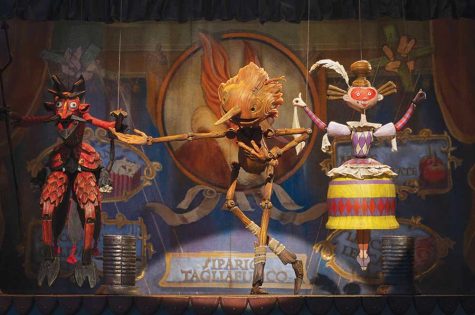A herr-razing tale!
A lot happened in the ‘60s. Among the rubble from that trip of a decade, we find a film named “They Saved Hitler’s Brain,” the kind of title which prompts only one reaction–”I wonder what this is about.”
Director David Bradley has done little of note aside from his well-thrashed masterpiece. His most critically successful film was an adaptation of Shakespeare’s Julius Caesar in 1950, which New York Times referred to as “frankly an amateur job.”
However, “They Saved Hitler’s Brain” didn’t become regarded as the worst film ever made by Bradley’s hand alone. It was indeed quite a team effort.
Though Bradley filmed much of the film in 1963, uncredited UCLA students filmed an additional twenty minutes of padding in 1968 at the request of a distributor. It’s just as terrible as Bradley’s original vision, while also managing to clash in every way.
Originally titled “Madmen of Mandoras,” the story was written by Steve Bennet, and it was adapted into a screenplay by Peter Miles. Add Anthony Sanucci as executive producer, and you have a crew of people who have done virtually nothing else in the film industry before or since.
Even though the title is only slightly less explicit than the word fuck, everything in the movie indicates the living head of Hitler, played by Bill Freed, was meant to be a surprise.
“Hitler alive? Incredible!” remarks leading lady Kathy Day (Audrey Caire) upon learning of the dictator’s continued cranial existence.
“This is too fantastic to believe!” agrees her husband Phil (Walter Stocker), blissfully unaware of the semantic drift that will eventually make those words synonymous with “good.”
Unfortunately, my sense of linguistic humor can’t make excuses for the numerous other writing flops and flagrant historical mistruths–such as Hitler dying heroically in battle, or the implication that his brain would have kept well, even before he put a bullet in it.
The horrible writing, and its equally executed acting, result in several almost uncanny scenes. Perhaps my favorite occurs early in the movie, between investigators Vic Gilbert (uncredited) and Toni Gordon (Tari Tabakin), as an argument over a sexist comment devolves into exaggerated facial expressions and loosely related insults.
“You know you’re really disgusting,” protests Toni at the end of the conversation. After a moment’s pause and a glance aside to formulate his comeback and/or check his lines on a notepad, Vic tells her, “Coming from you, that’s a compliment.”
You’d be hard pressed to find a single shred of quality thespianism in the movie–the dialogue is usually delivered matter-of-factly, but on the rare chance that any of the actors do show emotion, it is campy, forced and not at all relevant to the scene.
One of the more notorious instances involves the protagonists, two cars, a gun, and a couple of Nazi assassins. As the fascist revivalists drive past Kathy and Phil, the gun goes off with a flash and a crack, and some of the film’s worst dialogue ensues.
“Something’s wrong!” cries Kathy, inches away from the man in her car who has just been shot.
“What’s wrong?” Phil asks her, making me wonder if his eyes are operational enough for him to be driving.
“I don’t know!” Kathy responds, the oversold fear and shock just making the terrible writing stick out that much more.
Another personal favorite of mine comes from Vic after Toni reveals her knowledge of G-Gas–a deadly vapor that the Nazi’s plan to use to destroy the world. The first G, I can only assume, stands for Gas.
“I’m impressed,” he says, deadpan. “That’s one of our country’s best kept secrets.”
Compared to the poorly penned and performed script, the cinematography of “Hitler’s Brain” is nothing less than just as bad. The camera tends drift during shots, slowly panning side-to-side–not enough to be bothersome, but just enough to be noticed.
The mild vertigo aside, the camerawork is still horrible. Panning shots are timed poorly, with actors frequently disappearing of the screen while the camera tries to catch up.
This is on top of the already lackluster framing which frequently places actors directly on the edge of the screen, and I worry that Vic is going fall out of my laptop. Maybe then I could ask who plays him.
Almost every time the camera zooms into a close-up of an actor’s face, I can’t help but laugh. Even the motion of the camera feels overdramatic and tonally inappropriate.
One of the most egregious is when Camino Padua (Carlos Rivas) passively smokes a cigarette while his face is projected onto stock footage of World War II so he can give a monologue about his Nazi brother Teo (also Carlos Rivas). It goes on for almost five minutes.
The whole movie is so utterly surreal, that I have to wonder if it’s really just tobacco that they’re smoking down in Mandoras.
Knowing the ‘60s, it probably wasn’t.

Senior, Creative Writing
From Fletcher, VT
Spring 2020-Present
"Call me mommy and I'll bring you blankets and hold you while you cry."










